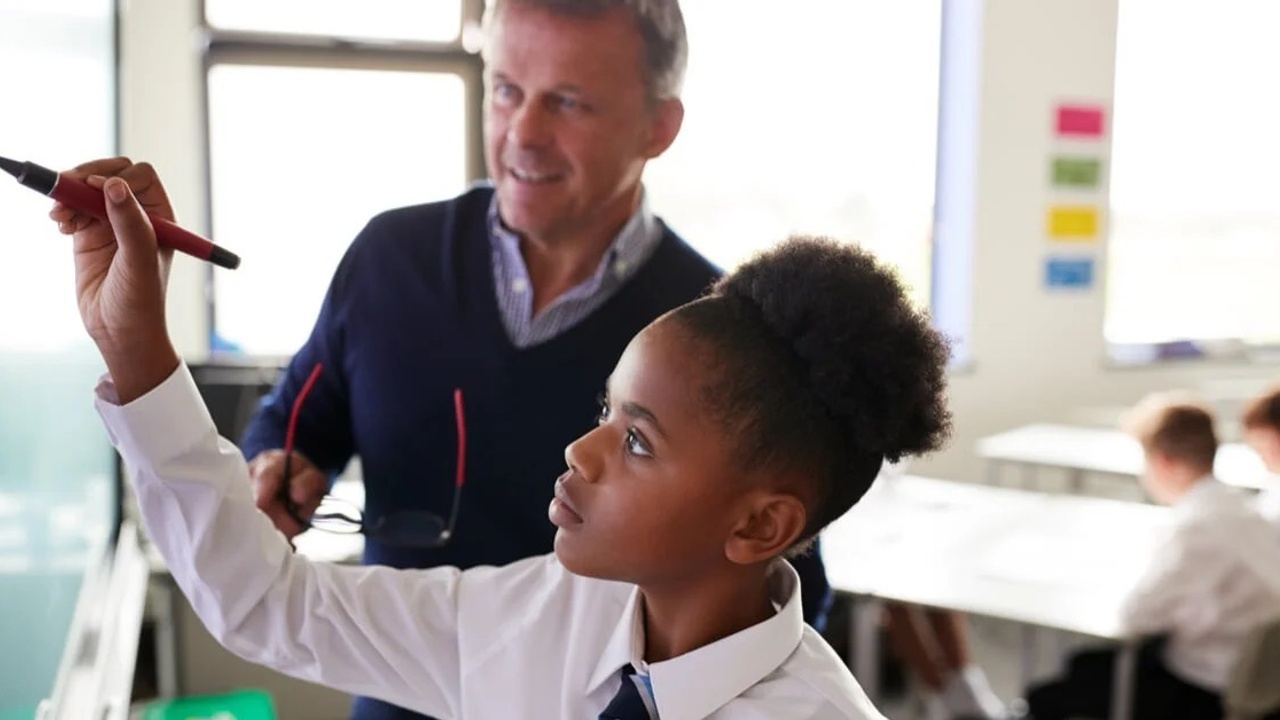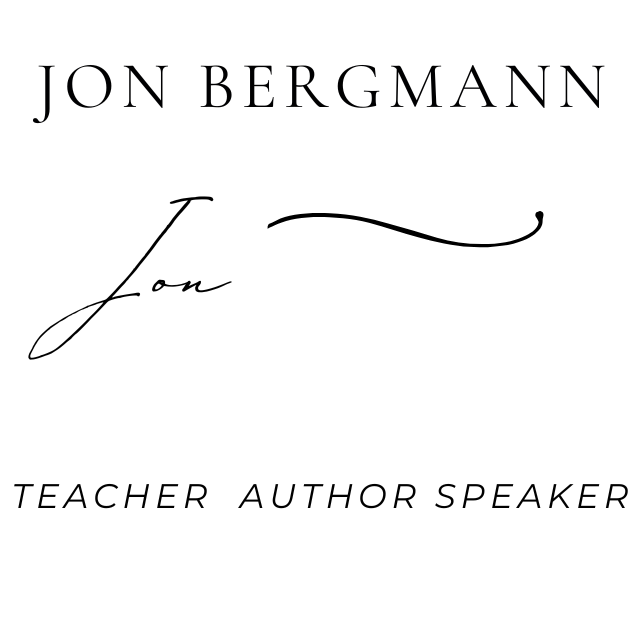Purposeful Teacher-Student Interactions Every Day - Really!

Do you struggle with making sure every teacher-student interaction has a purpose? Do you feel like you have enough interactions with your students each day? Do you want more meaningful conversations with your students? Do you want to make your school year awesome?
As I write this many of you are immersed in your summer break (so am I). It is a time of rejuvenation. Yet it is also a time of reflection. How can we make our classes better? And on top of all of that, we all just went through and to some extent are still going through a pandemic that upended all of education. So if you are reading this now, I want to encourage you to take time for yourself and recharge your batteries this summer if you haven’t already.
If you are at the reflection stage, then let me give you some ideas on how you can supercharge your teacher-student interactions. This article is one in a series where we will discuss how you can make mastery learning a reality. In this series, I am sharing how I, and thousands of other teachers, have transformed classrooms into a place where every student succeeds. In my previous articles, I gave an overview of Mastery Learning, then we learned that you don’t have to lecture to the whole class at the same time ever again, how to create a flexible pace for other students, and Extreme Differentiation that Doesn’t Drive You Crazy. If you haven’t yet read the other articles, I encourage you to go back so you can see the progression of how to do Mastery Learning well.
Time is the Key
Because I teach using the Flipped-Mastery model, I use upwards of 90% of my class time interacting with students, either individually or in small groups. I spend that time listening to students and asking questions of me or their peers, formatively assessing them constantly. I’m not sure how I would have as many purposeful conversations with students unless I used Flipped-Mastery. The time-shifting of direct instruction frees me up to really help students.
Switching your Brain Quickly is Essential
Most Flipped Class teachers would also concur with the time element, but with Mastery Learning there is a twist. Since students are moving through the curriculum at slightly different paces, I have to be ready for students who are at different places in their learning journey. That requires a deep mastery of my own curriculum. This is because in one moment I will be thinking about thunderstorms and when I work with the next student we are talking about hurricanes. And to add to the complexity, I allow students from other classes to come in and work during my current class. So I might also have a physics student in the geology classroom who wants to ask about electromagnetic fields.
I want to be honest with you. I wish I could say that I am a true master at everything I teach, but that isn’t true. I am a chemist who also teaches physics and geology. There are many times where I have had students ask questions that I had no clue about. I have also not been as well prepared for the purposeful conversations as I would have wished. But, I have found that learning is best done as a journey of discovery. I love nothing more than some student asking a crazy question and then us exploring the answer together. I remember one of my Chinese exchange students sharing with me how they use animals (mostly chickens) to help predict earthquakes in China. That wasn’t in our textbook so I then wrapped that into the curriculum.
Making Interactions Purposeful
Now that I have extra time and I am walking around interacting with students, what do I do that makes it purposeful? I call these interactions “mastery checks,” and these checks are the reason I am still teaching. I love to help students go deeper in their learning and to see their ah-ha moments. So how do I maximize the time?
- Walk around with a clipboard
So what do I actually do? Check out the video below of a typical day in my life (pre-pandemic). As you can see, my role is to walk around the classroom and talk to students. I simply am the man with a clipboard. Note that in the video I was using an iPad, but lately, I have switched back to the old analog clipboard. With a digital device, I was forever looking for the right box to check. It took away from my time with students, so I reverted to a simple clipboard.
- Have Students ask questions
I learned early in my Flipped-Mastery journey to first have the students speak. Getting inside their head requires me to be quiet and listen. My students know they must each bring a question or an interesting observation to every mastery check. I usually ask them to look over their text or video notes and develop a good question. These questions are a powerful insight into student comprehension of a topic. Sometimes their questions reveal a misconception. Other times their questions are too surface level and need to go deeper. And sometimes their questions take me deeper and we explore cool stuff together.
- Have key Questions prepped ahead of time — with follow up questions
One thing I need to be better at is to have key questions for each mastery check. Since a mastery check covers one key learning objective, there are always one or two essential questions that get to the heart of the learning. I haven’t done well to write these down on my clipboard and be ready to ask them. If the answer to that question comes out during the student’s meeting time, then that is even better.
- Ask them to prove they have mastered the content
Recently I was talking with Grayson Marsh, a “Year 7-8” mastery teacher at Ashurst Primary School in Ashurst New Zealand, and he made a comment that struck me. He asks his students to demonstrate that they have mastered each learning objective. I haven’t done this yet. And for me to do it, I will need to be very clear about the specific objective of each lesson. I need students to see these ahead of time and know that I will be asking them to demonstrate mastery. Grayson says that simply using the word mastery has upped the quality of his student work immensely.
- Become a Better Questioner
In doing thousands of “mastery checks” I have found myself becoming a better questioner. When I used to teach more traditionally, I would lecture about a specific topic once per year (maybe more if I taught the same class multiple times during the day). Since the current conversations aren’t in front of the whole class, but rather individually or in small groups, I found myself having more conversations with students and I had a lot more practice asking better questions. When interacting this way, I became exponentially a better questioner. I even craft the questions differently for different students. For some students, my class is very hard and I want them to get a more general understanding of the material. For others, the class is in their wheelhouse and I want to take them deeper in their understanding.
Have Fun
I love my job. I love my students. And I love having deep conversations with students about the beauty of the natural world. I find that the Flipped Mastery model allows me to play with knowledge — or rather we get to play with the content together. I know it may look and sound chaotic, but I could never go back.
Two weeks ago a student who is not in any of my classes approached me and asked if Physics was taught using the Flipped-Mastery model. I told him, yes, and he had a big sigh of relief. He was a bit afraid of taking it and was worried that it would be too hard. I then told him that I couldn’t in “good conscience” teach any other way. I have seen the results. I have seen students who deeply learn. I have seen them connect, and I feel more connected to my students than ever before.
So if you want to have more purposeful interactions with students, I encourage you to explore the Flipped-Mastery Model. It just works. If you want to learn more about Mastery Learning keep reading and join our community.
Jon's created several courses that will help you in the age of AI. Each short course will help you become a better teacher.
